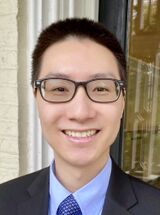Celebrating CAMB Graduates
Please join us in our celebration as we highlight our CAMB graduates.
The profiles are sectioned by degree type:
Doctor of Philosophy

Sangya Agarwal
Mentor: Carl June, PhD
Gene Therapy and Vaccines Program
Public Health Certificate Program (PHCP) Certificate
Thesis Title: Investigating the role of cell-intrinsic checkpoint regulators PD1 and CTLA4 in Chimeric antigen receptor T cells
Research and Lab Description: I studied the cell-intrinsic functions of PD-1 and CTLA-4 in CART cells showing that CTLA-4 disruption but not PD-1 enhances the efficacy of CART cells. Dr. June and his lab provided generous mentorship and a collaborative environment with a talented group of scientists focused on translating immunotherapies for patients.
Post PhD Plans: pursuing post-doctoral training in Dr. Howard Chang’s Lab at Stanford University
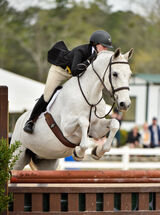
Megan Blair
Mentor: Zoltan Arany, MD, PhD
Cell Biology, Physiology, and Metabolism Program
Thesis Title: Branched-Chain Amino Acid Catabolism in Skeletal Muscle Controls Systemic BCAA Levels without Impacting Insulin Resistance
Research and Lab Description: I made lifelong friends in the Arany lab, and I'm so lucky to have them!
Post PhD Plans: I have accepted a scientist role at WuXi Advanced Therapies with the Analytical Development team. I also plan to spend more time training in the saddle with my equine partner, Roshambo (pictured), post-graduation.
Mentor Comment: What can I say — there is no one quite like Megan. We will miss so many things! The wondrous smile, always a quip, buoyant energy…. I know a lot of work got done, but you wouldn’t know it from the fun being had in her bay. But a lot of work definitely did get done: congratulations on a beautiful and meticulous thesis. We will miss her!
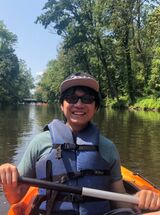
Zhendong Cao
Mentor: Junwei Shi, MD
Genetics and Epigenetics Program
Thesis Title: Systematic evaluation of epigenetic regulators and transcription factors in acute myeloid leukemia
Research and Lab Description: Delineating transcriptional vulnerabilities in acute myeloid leukemia. A major objective of the Shi lab is to annotate and dissect these genetic vulnerabilities in leukemia using cutting-edge CRISPR technologies.
Post PhD Plans: Currently a postdocteral research in Charles Sawyers lab at MSKCC.
Mentor Comment: Zhendong Cao was the first PhD student to join my lab, and we jointly built the foundation of the lab. He is an outstanding, intelligent, passionate, and independent scientist. During his graduate school training, he made significant contributions to cancer biology research, particularly in acute myeloid leukemia. His achievements include discovering a new acute myeloid leukemia essential epigenetic-transcription axis and developing a CRISPR-based functional genomics platform for primary patient samples. He possesses all the key characteristics of a successful scientist, and I am very much looking forward to seeing what he accomplishes in the near future.
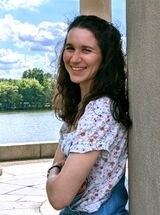
Jessica Chotiner
Mentor: Jeremy Wang MD, PhD
Cell Biology, Physiology, and Metabolism Program
Thesis Title: Modeling infertility: Single gene mutations and consequences for germ cell development
Mentor Comment: Jessica is passionate about research. She developed a mouse model for recurrent pregnancy loss. Her thesis work resulted in several publications. She was a great mentor for undergraduate students. She was active in the science community. She was a wonderful lab citizen. With her sense of humor, she kept people’s spirits up.
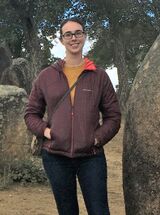
McKensie Collins
Mentors: Jos Melenhorst, PhD and Carl June, MD
Gene Therapy and Vaccines Program
Thesis Title: Intestinal granuloma formation and function during Yersinia pseudotuberculosis infection
Mentor Comment from Jos: I had the great pleasure of mentoring McKensie. She was a leader, providing guidance to lab members. She took on a challenging project to study leukemia resistance to chimeric antigen receptor T cells. Thanks to a well-sourced Penn patient cell biobank we were able to test our hypothesis that insufficient stimulation by primary patient leukemia cells resulted in aborted CAR T cell activation. Her work has led to several approaches to overcome this resistance which are still being pursued in my lab. Thanks for that from all of us!

Erica Dhuey
Mentor: Andy Minn MD, PhD
Cancer Biology Program
Thesis Title: The Role of the T cell Repertoire in Response to Cancer Immunotherapy
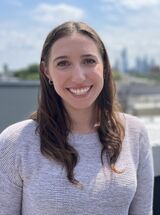
Miriam Doepner
Mentors: Todd Ridky MD, PhD
Cancer Biology Program
Thesis Title: Melanin synthesis intermediates inhibit melanomagenesis

Adam Ferrari
Mentor: Ronny Drapkin, MD, PhD
Cancer Biology Program
Thesis Title: Epigenetics and Histone Ubiquitination in Ovarian Cancer
Research and Lab Description: Dr. Ronny Drapkin is an incredibly talented scientist and teacher. I’m honored to have spent the last few years working in his lab, learning from him, and sharing a love of bourbon.
Post PhD Plans: I will be anchoring my career in healthcare/science investing.
Mentor Comment: Adam joined my lab at the beginning of the pandemic. We spent many hours Zooming about project and papers before he was able to physically join the lab. From the get-go he was motivated and determined, perhaps in no small part because of his own personal bout with childhood cancer. He hit the ground running and did a masterful job of marshalling the tools, methods, and collaborators to explore the regulation of histone H2B monoubiquitylation (H2Bub1) in diverse subtypes of ovarian cancer. His findings served as a catalyst to explore H2Bub1 in endometriosis and other gynecological diseases. Adam's leadership skills, cultivated in the lab and on the Rugby pitch, will undoubtedly serve him well as a future captain of industry!
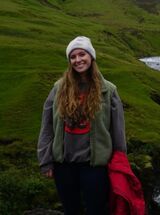
Emily Flam
Mentor: Zoltan Arany MD, PhD
Cell Biology, Physiology, and Metabolism Program
Thesis Title: Integrated landscape of cardiac metabolism in end-stage human non-ischemic cardiomyopathy
Mentor Comment: Emily accomplished an impressive task: bridging our lab with Ken Margulies’ lab — very different worlds. She made it look easy. Her work on human cardiac metabolism is already making waves, and there’s much more to come where she paved the way. Super proud!
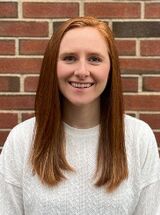
Rebecca Glynn
Mentor: Craig Bassing, PhD
Cancer Biology Program
Thesis Title: DNA DAMAGE INDUCED DURING ANTIGEN RECEPTOR GENE ASSEMBLY SIGNALS TO REGULATE MECHANISMS OF V(D)J RECOMBINATION: IMPLICATIONS FOR AUTOIMMUNITY AND GENOMIC INTEGRITY
Research and Lab Description: My thesis focused on elucidating signaling pathways initiated during antigen receptor gene assembly in developing lymphocytes that contribute to mono-allelic assembly and expression of antigen receptor genes. The Bassing Lab is focused on elucidating mechanisms that enforce mono-allelic assembly and expression of antigen receptor genes and the physiological importance of these mechanisms in the pathogenesis of autoimmune disorders and lymphoma.
Post PhD Plans: I plan to work in the Bassing Lab as a Postdoctoral Fellow to finish a project that gained traction towards to end of my PhD work, and then I am interested in a Research and Development position in the Pharmaceutical/Biotechnology industry.
Mentor Comment: It was a pleasure and honor to serve as thesis mentor for Becca. Her great passion for science and enthusiasm for fearlessly attacking challenging biological problems enabled her to make important and unexpected insights into molecular mechanisms that control antigen receptor gene diversification. She generously took responsibility for training and helping me mentor people who joined the lab after her, making their experience rewarding and nearly as productive as her own. I am grateful to Becca for her giving me the opportunity to learn as much from her as she from me.
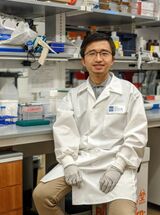
Yaoyu Gong
Mentor: Chi Dang, MD PhD
Cell Biology, Physiology, and Metabolism Program
Graduate Training in Medical Science (GTMS) Certificate
Thesis Title: Sodium hydrogen exchanger 1 enhances the anti-tumor activity of natural killer cells
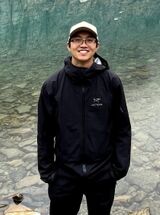
Christopher Gu
Mentors: Frederic Bushman, PhD and Ronald Collman, MD
Microbiology, Virology, and Parasitology Program
Thesis Title: Applying next generation sequencing to investigate the dynamics of clinical infections
Mentor Comment from Rick: It was a pleasure to work with Chris during his time in lab. He interacted very well with lab members and our collaborator Ron Collman, and advanced several exciting projects in the microbiome space. He faced up to the challenges of the COVID-19 pandemic and kept his exciting work going through difficult circumstances.
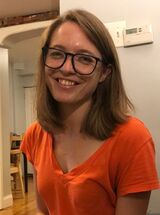
Olivia Harding
Mentor: Erika Holzbaur, PhD
Cell Biology, Physiology, and Metabolism Program
Thesis Title: Mitophagy initiation is impaired by neurodegenerative-linked mutations and induces NF-ĸB inflammation
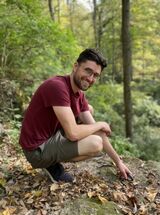
Joshua Hatterschide
Mentor: Elizabeth White, PhD
Microbiology, Virology, and Parasitology Program
Thesis Title: E7, PTPN14, and YAP1: how papillomaviruses retain cells in the basal epithelial layer with implications for persistence and carcinogenesis
Research and Lab Description: My thesis research focused on a mechanism by which the HPV E7 oncoprotein impairs differentiation of target cells. The White lab studies how protein-protein interactions between the HPV oncoproteins and their various host cellular targets can alter host cell function and ultimately lead to carcinogenesis.
Post PhD Plans: I am currently a postdoctoral associate at Duke University studying HCMV infection of the placenta.
Mentor Comment: Joshua’s exceptional scientific creativity plus his drive and technical skills made his thesis research an incredible success. He took on the challenge of studying a mostly uncharacterized virus-host interaction and developed a new model for understanding how human papillomavirus infection changes the migration of infected cells in tissue. He’s a thoughtful colleague who is missed in our lab, and I’m certain that the impact of his work will be long-lasting.
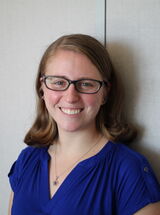
Corey Holman
Mentor: Patrick Seale, MD
Cell Biology, Physiology, and Metabolism Program
Thesis Title: The aging-induced decline in beige adipose tissue development
Research and Lab Description: My thesis work focused on understanding the contribution of adipocyte precursor cells and adipocyte subpopulations to the aging-induced decline in beige adipose tissue development. The Seale lab studies the development and function of adipocytes in order to identify therapeutic targets for obesity and metabolic disease.
Post PhD Plans: I will be staying at UPenn as Technical Director of the Rodent Metabolic Phenotyping Core – if you need any assistance with in vivo metabolism experiments, please reach out and I’d be happy to help!
Mentor Comment: Corey has been a major positive force in our lab. She tackled a challenging project and made many important contributions to our understanding of how aging leads to dysregulation of adipocyte development and metabolic function. In the course of her studies, she also pioneered and established several new methods in the lab. She is dedicated and has an admirable positive energy about her, contributing in many ways to our lab and floor culture. She goes out of her way to support her colleagues and collaborators, and makes everyone feel welcome. I have greatly enjoyed working with Corey, and look forward to watching her career develop from here.

Kanika Jain
Mentor: Margaret Chou, MD
Cancer Biology Program
Thesis Title: Ubiquitin-specific Protease 6 (USP6): A novel hot tumor microenvironment agonist that inhibits Ewing sarcoma through Natural Killer cell activation
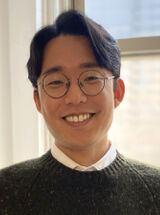
Inyoung (Ethan) Jung
Mentor: Joseph Fraietta, PhD
Gene Therapy and Vaccines Program
Thesis Title: BLIMP1 and NR4A3 Transcription Factors Reciprocally Regulate Antitumor CAR T-Cell Stemness and Exhaustion
Mentor Comment: Inyoung Jung has consistently demonstrated exceptional dedication, creativity, and resilience throughout his time in the lab. He has an innate ability to tackle complex challenges with unwavering perseverance, leading to several breakthroughs and publications in the field of cellular immunotherapy. Inyoung's collaborative spirit has not only fostered strong relationships with his peers but has also significantly contributed to the success of numerous interdisciplinary projects. As Inyoung embarks on the next phase of his career, I am confident that he will continue to make a lasting impact on the scientific community and beyond.
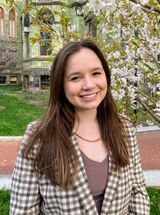
Kelsey Kaeding
Mentor: Kenneth Zaret, PhD
Genetics and Epigenetics Program
Thesis Title: Unlocking compacted heterochromatin through modulation of associated proteins
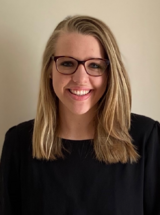
Hannah Kolev
Mentor: Klaus Kaestner, PhD
Developmental, Stem Cell, and Regenerative Biology Program
Thesis Title: Determining the role of UTX and JMJD3, two H3K27me3 demethylases, in the intestinal epithelium during homeostasis and regeneration
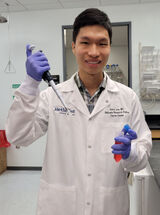
Avery Lee
Mentor: Andrew Hu, PhD
Cancer Biology Program
Thesis Title: Loss of AID Exacerbates the Malignant Progression of CLL
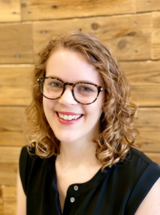
Jennifer Luppino
Mentor: Eric Joyce, PhD
Genetics and Epigenetics Program
Thesis Title: Investigating the consequences of cohesin dysfunction on genome folding and gene regulation using novel imaging-based approaches.
Research and Lab Description: I studied the regulation of a set of five anterior-expressed genes in the C. elegans embryo with a focus on ref-2. I demonstrated that all five anterior genes, including ref-2, are regulated by the Wnt pathway components pop-1/TCF and sys-1/β-catenin, that ref-2 requires the transcription factors tbx-37 and tbx-38 for anterior expression, and that a predicted TBX-37/TBX-38 binding site from a ref-2 enhancer, when multimerized, is sufficient to drive anterior-biased expression. The Murray lab seeks to understand how genomes control animal development by using whole-organism live-cell imaging, and genomics methods, combined with classical genetics, to study gene regulation across the entire embryo of the model organism C. elegans.
Mentor Comments: I was extremely lucky to have recruited Jenny as the first graduate student to my new lab and continued to be highly impressed by how rapidly she learns and absorbed new ideas, and her exceptional self-motivation. She has set the standard for many of the FISH assays we have in the lab and made several transformative discoveries throughout her thesis. In particular, Jenny found that the basic building blocks of chromatin folding (TADs) are not spatially separate structures but instead exhibit frequent and extensive interactions with each other that can influence gene regulation.

Kaitlin Marquis
Mentor: Frederick Bushman, PhD
Microbiology, Virology, and Parasitology Program
Thesis Title: Investigating small molecule inhibitors and enhancers of HIV infection
Mentor Comments: From the start Katie was very focused on mitigating the global burden of HIV in women; she designed and carried out an innovative experimental program in this space. She was highly motivated and focused on her research. The COVID-19 epidemic obstructed her efforts, but through it she continued to advance her important work. She was a pleasure to have in the lab!
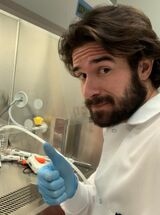
Alex Martino
Mentor: James Wilson, MD PhD
Gene Therapy and Vaccines Program
Thesis Title: Characterization of the AAV-PHP.B Capsid and its Interaction with the Ly6a Receptor: Implications for Receptor-Targeted Vector Engineering
Mentor Comment: Alex did an excellent job in bringing state-of-the- art biochemistry to the challenge of engineering gene therapy vectors. His thesis provided an interesting perspective on protein-protein interactions relevant to the development of improved AAV vectors.
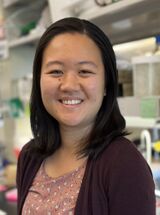
Rina Matsuda
Mentor: Igor Brodsky, PhD
Microbiology, Virology, and Parasitology Program
Thesis Title: Intestinal granuloma formation and function during Yersinia pseudotuberculosis infection
Research and Lab Description: My thesis work uncovers the formation of granulomas in the intestinal tract during Yersinia pseudotuberculosis infection and identifies a cytokine signaling circuit in inflammatory monocytes that promotes host control of bacteria within this niche. The Brodsky lab studies innate immune responses to bacterial pathogens.
Post PhD Plans: Post-doctoral fellow with Dr. Robert Britton at Baylor College of Medicine
Mentor Comment: Rina is an exceptional student whose work effectively represents the discovery of a new location within the intestinal mucosa that serves as a previously-unrecognized site for Yersinia colonization, and is likely to be a fundamental advance in the field of host-bacterial mucosal immune interactions. Rina’s work reflects an enormous amount of dedication, ownership, and leadership in thinking about and executing the project. She has been a wonderful member of the lab, and a privilege to work with as a mentor. In addition to her scientific work, Rina has also been an amazing lab citizen and CAMB/community citizen – she has been willing give up a lot of her own time to help others in the lab, to mentor and train younger students, and has taken on extensive opportunities to teach both in the lab and classroom settings outside the lab as well. Rina mentored multiple undergrads, rotation students, and new PhD students in the lab. Rina is a truly outstanding scientist and I look forward to seeing everything that she accomplishes in the future stages of her career!

Quentin McAfee
Mentors: Zoltan Arany, MD PhD, and Benjamin Prosser, PhD
Cell Biology, Physiology, and Metabolism Program
Thesis Title: Pathogenic mechanisms of truncated titin in dilated cardiomyopathy
Mentor Comment (Arany): I view Quentin as the bar we should aspire to when it comes to RIGOR. He is a remarkably careful scientist, but also wonderfully creative – a pair of desirable traits that don’t always go hand in hand. Congratulations on beautiful thesis work!

Nina Montoya
Mentor: Joseph St. Geme, MD
Microbiology, Virology, and Parasitology Program
Public Health Certificate Program (PHCP) Certificate
Thesis Title: Elucidating the role of the Kingella kingae lipopolysaccharide (LPS) in galactan surface anchoring and membrane dynamics
Research and Lab Description: My work in the St. Geme Lab focused on characterizing unique surface sugars expressed on the surface of K. kingae, and understanding how they influence the bug’s ability to cause disease. The St. Geme lab is interested in understanding the basic biology of the pediatric bacterial pathogens, Haemophilus influenzae and Kingella kingae. We use genomic and functional experiments to characterize the molecular determinants of disease.
Post PhD Plans: I am now working as a Program Manager, on the Awards Team at the New York Academy of Sciences, administering Awards designed to support young scientists doing innovative biomedical research.
Mentor Comment: Nina performed beautiful work as a graduate student. She studied the structure and function of the Kingella kingae exopolysaccharide, which mediates resistance to immune mechanisms and is essential for full bacterial virulence. She made fundamental observations, establishing that the K. kingae exopolysaccharide is anchored to an atypical lipopolysaccharide O-antigen, a novel mechanism for association of an exopolysaccharide with the bacterial surface. In the course of her work, she demonstrated impressive creativity and a keen ability to present her findings in a clear and understandable manner.
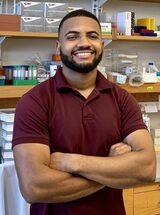
Louis Parham
Mentor: Kathryn Hamilton, PhD
Cancer Biology Program
Thesis Title: Autophagic state prospectively identifies facultative stem cells in the intestinal epithelium
Mentor Comment: Louis set an incredibly high bar as the first PhD student from the lab. His thesis work and resulting publications made significant contributions to the evolving field of intestinal stem cell biology, shifting the way we think about facultative stem cells and their role in tissue regeneration. In addition to his scientific contributions, Louis was a leader in keeping the lab lighthearted and fun- even in stressful times. While he is missed in the lab, I look forward to his continued success in science and life!
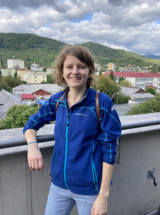
Ana Petracovici
Mentor: Roberto Bonasio, PhD
Genetics and Epigenetics Program
Thesis Title: Uncoupling the maintenance and establishment of Polycomb repression
Mentor Comment: Ana was an extraordinary student performing as or above the level of a postdoc for most of her time in the lab. Her thesis work made important contributions to our understanding of Polycomb-mediated gene regulation and broke new ground in the experimental approaches used to study this problem. We already miss Ana's spirited participation in lab meetings and her contributions to all of the lab projects, close or far from her scientific interest. I can't wait to read about the great discoveries Ana will make in her future endeavors.
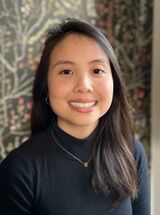
Jessica Phan
Mentor: Edward Lee, MD PhD
Cell Biology, Physiology, and Metabolism Program
Thesis Title: Pathophysiology of valosin-containing protein variants in frontotemporal dementia
Mentor Comment: Jessica has had a tremendous impact on our lab and on our field. I am most impressed at how much she has grown scientifically, and this has translated into some remarkably important findings that will continue to fuel research in our lab for many years to come. Jessica works remarkably well with others to the benefit of everyone, and she will be missed. Our only consolation is knowing she will go out to the world to continue being amazing!
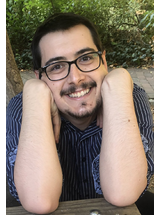
Tzvi Pollock
Mentor: Sunny Shin, PhD
Microbiology, Virology, and Parasitology Program
Thesis Title: Cooperative Caspases Mediate TNF-Licensed Cell Death in Legionella Infection
Research and Lab Description: My thesis work sought to define the ways in which the molecule TNF defends the mammalian host against the pathogen that causes Legionnaires' disease. I specifically focused on how seeing TNF prompts cells to self-destruct, limiting their ability to harbor infection. In the Shin lab, we're really excited about how the innate immune system detects bacterial threats, responds to those threats, and communicates that response across the body!
Post PhD Plans: I'm excited to have joined the John lab at the Children's Hospital of Philadelphia, helping to research malaria infection!
Mentor Comment: Tzvi’s thesis research provided fundamental insight into how the cytokine TNF enhances the ability of macrophages to restrict intracellular bacterial infection and the role of caspases in anti-bacterial defense. Tzvi is an incredibly insightful and thoughtful scientist and scholar. Tzvi is also a kind and empathetic person and helped foster a supportive and inclusive environment within our lab. I am inspired by his dedication to mentoring students and his advocacy for mental health, in addition to his wide ranging knowledge and enthusiasm for all aspects of life. Congratulations Tzvi, I am so proud of you! I look forward to celebrating your continued success!
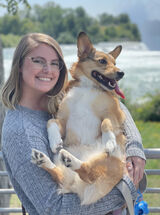
Hunter Reavis
Mentors: Ronny Drapkin, MD PhD
Cancer Biology Program
Thesis Title: Investigating the relationship between the nervous system and high-grade serous ovarian cancer
Mentor Comment: Hunter is exactly the type of graduate student that all faculty aspire to attract to their labs – ambitious, highly motivated, creative, enthusiastic, and a team player. I am extremely impressed by her tenacity, sense of scientific adventure and drive, and her sharp and inquisitive mind. She was on the frontline of a brand-new area of cancer biology - tumor innervation, and helped developed models and approaches that will continue to guide our efforts in the years to come. It was a pleasure to watch her mature scientifically. She was not only a great mentee, but she was also an outstanding mentor - many high school and undergraduate students benefited from her guidance, teaching, and role model. It was a privilege to mentor Hunter, and I cannot wait to see what she accomplishes in her postdoctoral fellowship and beyond.

Joel Rurik
Mentor: Jonathan Epstein, MD
Developmental, Stem Cell, and Regenerative Biology Program
Thesis Title: Targeting pathogenic fibroblast in the failing heart with in vivo engineered T cells

Isabel Sierra
Mentor: Montserrat Anguera, PhD
Developmental, Stem Cell, and Regenerative Biology Program
Thesis Title: Investigating the nuclear organization of the inactive X in female lymphocytes
Mentor Comments: Isabel is one of the most scientifically curious students that I have mentored! She is incredibly bright and talented, very hardworking, and a natural scientist. She started a number of very challenging projects in my lab, on quite diverse topics. Isabel has a wonderful ability to collaborate with various labs, and is a true team player. I am proud of all of her accomplishments, and her talents and determination will continue to pay off for her future scientific career.

Bryan Simpson
Mentor: Beverly Davidson, PhD
Gene Therapy and Vaccines Program
Thesis Title: CRISPR/CAS9 GENE EDITING AND TARGETED LONG-READ SEQUENCING FOR SPINOCEREBELLAR ATAXIA TYPE 2 THERAPY
Research and Lab Description: My thesis work advanced our knowledge for the future development of AAV-delivered CRISPR-based therapies for spinocerebellar ataxia type 2 and other neurodegenerative disorders through the use of animal models and targeted long-read sequencing approaches. The Davidson Lab studies genetic diseases that affect the brain and develops novel gene therapies.
Post PhD Plans: I am currently a Scientist at Latus Bio, a gene therapy startup company co-founded by my advisor Dr. Beverly Davidson.
Mentor Comment: Bryan was a terrific lab member and a creative force in the lab as we embarked on gene therapy approaches for dominant inherited disorders using CRISPR/Cas9 methods. Bryan spearheaded novel methods to identify the many editing outcomes that occur after AAV delivery to brain using long-read methodologies, setting the stage for the development of safer methods for gene silencing. His exceptional work ethic and great skills at the bench will serve him well as he applies his skills to translating therapies to patients.
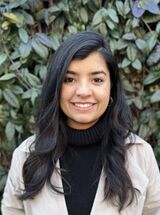
Pankhuri Singhal
Mentor: Marylyn Ritchie, PhD
Genetics and Epigenetics Program
Thesis Title: Epistasis and Evolution of Disease Trajectories in Multi-dimensional Study of Genomic and Phenomic Interactions
Research and Lab Description: The Ritchie lab is focused on elucidating the genomic and phenomic underpinnings of complex diseases by developing bioinformatics and machine learning tools to analyze patient health data. My research focus was firstly on determining the role of genetic interactions in disease risk. Secondly, I focused on identifying disease trajectories and developing predictive models of disease outcomes using longitudinal clinical data. It has been my privilege to train under a brilliant and supportive advisor like Marylyn. I enjoyed learning so much from my lab-mates, a highly talented and fun-loving group of interdisciplinary thinkers.
Post PhD Plans: Postdoctoral fellow in the Department of Medicine at the University of Pennsylvania
Mentor Comment: Pankhuri was extremely daring in her PhD work by exploring complex topics in both genomics and electronic health record research; and she made phenomenal traction in both endeavors. Pankhuri is a star – the type of PhD student that ever mentor hopes to have. I have been extremely impressed with her level of scientific interest, exploration of the literature, unwavering work ethic, stellar productivity, and ability to ask excellent and important questions. She has been a model citizen and a phenomenal mentor to others in the lab; we will all miss her dearly.
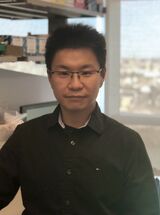
Zeyuan Edward Song
Mentor: Michael Milone, MD PhD
Gene Therapy and Vaccines Program
Thesis Title: Combining IAP Antagonists with CAR T Cell Therapy to Treat Glioblastoma: the IAP Antagonist Birinapant Enhances Chimeric Antigen Receptor
T Cell Therapy for Glioblastoma by Overcoming Antigen Heterogeneityr
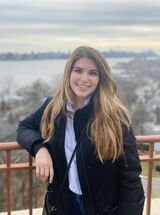
Silvia Stankov
Mentor: Daniel Rader, MD
Gene Therapy and Vaccines Program
Thesis Title: Leveraging natural genetic variation in the human triglyceride regulator APOA5 to understand its function
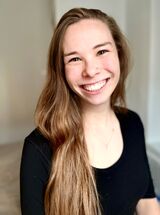
Katie Strelau
Mentor: Carolyn Cannuscio, ScD
Microbiology, Virology, and Parasitology Program
Public Health Certificate Program (PHCP) Certificate
Thesis Title: Integrating epidemiology and genomics for a health-equity centered response to SARS-CoV-2 in Philadelphia
Research and Lab Description: My thesis explored the relationship between social vulnerability and SARS-CoV-2 transmission in Philadelphia, and revealed that more vulnerable populations experienced greater impacts of the COVID-19 pandemic, specifically in terms of incidence, hospitalization, and mortality rates. Broadly, the Cannuscio Lab conducts epidemiological research in an effort to improve public health, with a specific focus on disadvantaged urban populations.
Post PhD Plans: I will begin working as an Epidemic Intelligence Service Officer for the Centers for Disease Control in July 2023, and I will be based at the Vermont Department of Health in Burlington, VT.
Mentor Comment: Working with Katie has been a pandemic silver lining. When workplaces, schools, and many Penn labs shut down in March 2020, Katie stepped up to help develop and lead a COVID-19 contact tracing program staffed by more than 100 volunteers. Through the arduous work of pandemic control, Katie discovered her fierce devotion to public health. Katie's thesis documented pandemic inequities here in Philadelphia, showing significant elevations in mortality among residents of poorer, more vulnerable neighborhoods. Katie is determined to advance health equity and will bring her gifts and talents to the CDC's Epidemic Intelligence Service, where she will be a fabulous disease detective--with the best visual displays of data the EIS has ever seen.
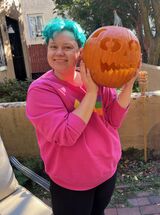
Alisa Sukhina
Mentor: Will Bailis, PhD
Microbiology, Virology, and Parasitology Program
Thesis Title: Investigating immunodeficiency and infection responses in murine model of undernutrition
Research and Lab Description: My thesis work identified that undernutrition broadly impairs abundance of immune cells and severely decreases neutrophil production and abundance, making undernourished mice highly susceptible to infections. The broad immunosuppressive effects of undernutrition are reversible by restoring food intake, but the neutrophil impairment is lasting and contributes to higher infection susceptibility. I am grateful to Dr. Will Bailis, a supportive and generous mentor, and my incredible peers in the lab for fostering an environment that encouraged curiosity, creativity, and scientific vigor, and for teaching me everything there is to know about immunometabolism from biochemical to organismal level.
Post PhD Plans: I am moving to Toronto, Canada to reunite with my Ukrainian family and to persue a career as a managment consultant with McKinsey&Co.
Mentor Comment: I am deeply proud to have Alice Sukhina graduate as the first PhD student from the Bailis Lab. Alice has a rare combination of resilience, determination, and intellectual fearlessness that will take them wherever they find themselves throughout life. For their PhD, Alice chose to study why individuals experiencing malnutrition are immunocompromised and vulnerable to infection, an unfortunately understudied subject. They found that simply refeeding -- the traditional means of treating malnutrition -- is not sufficient to fully recover infection susceptibility, highlighting how food scarcity and poverty should be considered immunologic and clinical variables. Alice will be sorely missed, but the impact of their work will be felt in the lab for a long time going forward. I wish them the best of luck and cannot wait to see the impact they make as the move forward on their journey!
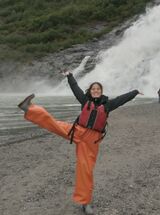
Aoi Wakabayashi
Mentor: Gerd Blobel, MD PhD
Genetics and Epigenetics Program
Thesis Title: Identification and characterization of RBM12 as a novel regulator of fetal hemoglobin expression
Mentor Comment: When Aoi moved on, the whole lab felt the loss. Aoi was a focal point of the lab by being incredible interactive, driving scientific discussions, planning lab social events, playing all kinds of sports, and helping many lab members directly with good advice and hands on experimentation. Aoi is a fantastic scientist with a fun loving and engaging personality. The friends and colleagues she made will be part of her network for a long time. Aoi will be successful in whatever she chooses to do next. We all hope that she will stay in touch.
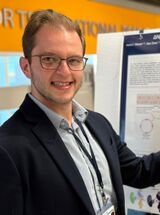
Aaron Weiner
Mentor: Andrew Vaughan, PhD
Developmental, Stem Cell, and Regenerative Biology Program
Thesis Title: Lung epithelial identity, plasticity, and fate choice during injury repair and regeneration
Research and Lab Description: My thesis work focused on converting dysplastic lung epithelium, an "epithelial scar"-like tissue originating from airway basal cells that ectopically migrate to the alveolar space following severe lung injuries, into functional alveolar tissue. To this end I targeted the master basal cell identity regulator p63 in dysplastic basal cells, finding that its deletion resulted in widespread epigenomic rewiring that conferred renewed plasticity to these basal cells, allowing for their conversion into appropriate alveolar epithelial cell types including AT2s and AT1s. The Vaughan lab is a collaborative, fun-loving research group focused on all aspects of lung regeneration and how to aid in its repair, especially following severe pulmonary insults such as influenza infection or COVID-19.
Post PhD Plans: I will be transitioning directly into a postdoctoral research fellowship with Dr. Konrad Hochedlinger at Massachusetts General Hospital studying the regulation of stem cell fate choice and identity.
Mentor Comment: Aaron is the first student to graduate from my lab, and I honestly could not have asked for a better first student. Aaron is a fantastic experimentalist, authoring two important publications, but just as importantly he is a “big picture” thinker who identifies fundamentally important questions and designs novel ways to approach those questions. I have no doubt Aaron is going to continue to make important contributions to the fields of stem cell biology and regenerative medicine during his postdoc and beyond!
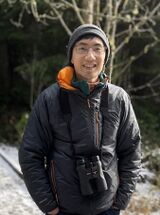
Vincent Wu
Mentor: Michael Betts, PhD
Microbiology, Virology, and Parasitology Program
Thesis Title: Deciphering the heterogeneity of HIV reservoir immunology: a single-cell perspective
Research and Lab Description: My thesis work was focused on increasing our understanding of the HIV reservoir by using a single-cell approach to describe the complex phenotypic heterogeneity of infected cells within the reservoir. I am very fortunate to have done my thesis in the Betts Lab with a super supportive mentor plus a fun and smart group of colleagues!
Post PhD Plans: I am continuing my research as a transitionary postdoc at Penn as I work towards an early independence research track.
Mentor Comment: Vincent is like a Swiss Army knife in the lab, capable of doing nearly everything in the lab: concept generation, experiments, bioinformatics, manuscript writing and grant preparation. These, in addition to his collegial and collaborative manner, have made him an ideal student. His contributions to the HIV research field are already extensive, and I can only hope to continue collaborating with him as he moves onto next phase of his career.
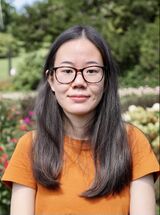
Yixin Zang
Mentor: Greg Bashaw, PhD
Developmental, Stem Cell, and Regenerative Biology Program
Thesis Title: To cross or not to cross: uncovering novel regulators of axon guidance at the midline
Research and Lab Description: Using both Drosophila and mouse embryos, my Ph.D. thesis work identified novel regulators of the attractive axon guidance receptor Frazzled and its vertebrate homologue DCC. The Bashaw lab studies the cellular and molecular mechanism of axon guidance, and the lab is a collaborative, supportive and fun group!
Post PhD Plans: I will be joining Dr. Gwyneth Card’s lab at Columbia for my postdoc.
Mentor Comment: It has been a true pleasure having Yixin as a student in the lab. She has been a powerful force in my lab and her research accomplishments are truly remarkable. Her projects required expertise in both fly and mouse models, as well as sophisticated molecular and biochemical approaches. She is generous with her time and expertise and an incredible resource for the lab. I am lucky to have had such an outstanding student in the lab, and I look forward to watching her continued development as a postdoctoral fellow and beyond.
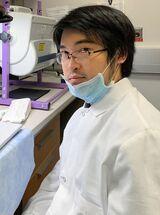
Duo Zhang
Mentor: Yi Fan, MD PhD
Cancer Biology Program
Thesis Title: Endothelial Metabolism in Glioblastoma Vascularity and Resistance to Immunotherapy
Research and Lab Description: My thesis investigates the role of phosphoglycerate dehydrogenase (PHGDH) in endothelial cell metabolism, revealing its contribution to glioblastoma's hypoxic and immune-resistant vascular microenvironment, and proposes targeting PHGDH to improve T cell-based immunotherapy effectiveness in treating this aggressive brain tumor. Fan Lab focuses on cancer and regenerative medicine, targeting the tissue microenvironment to develop effective therapies against diseases like glioblastoma, with research areas including vascular transformation, immunotherapy, and cancer stem cells.
Post PhD Plans: Following graduation, my immediate plan is to pursue a postdoctoral position in the Fan Lab, where I will further develop the exciting projects I started during my time there.
Combined Degree, MD-PhD
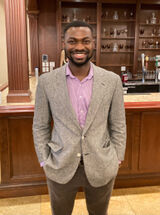
Daniel Akuma
Mentor: Igor Brodsky, PhD
Microbiology, Virology, and Parasitology Program
Thesis Title: Structural and functional determinants of caspase-11 inflammasome assembly during innate immune defense
Research and Lab Description: I uncovered the mechanisms through which the pathogenic bacterial product, lipopolysaccharide, triggers the assembly of the noncanonical caspase-11 inflammasome. The Brodsky lab provided a supportive and collegial environment to develop my curiosity as a budding physician-scientist while growing as a person.
Post PhD Plans: completing medical school and applying into residency in pathology this fall.
Mentor Comment: Daniel is an outstanding student whose thesis research has the potential to fundamentally transform our understanding of how inflammation during sepsis is regulated, and may facilitate development of novel anti-sepsis therapies. Daniel is enthusiastic, energetic, brilliant, and was a pleasure to work with. Beyond his scholarly work, Daniel has a long-term commitment to outreach and enhancing diversity in medicine and research. He served as the Seminars/Workshops co-chair for the Ernest E. Just Biomedical Society, as well as Program Director of the African Community Learning Program. During the COVID19 pandemic, Daniel partnered with a team of other medical and engineering students to develop a prototype for an in-the field portable N95 sterilizing device, and obtained funding from the Clinton Foundation and Clinton Global Initiative University to operationalize and produce the device for broader use. Daniel mentored rotation students and undergraduates in the lab and had a major impact on the direction of research in the lab. I am super proud of Daniel and everything he accomplished. I look forward to seeing his future success!

Saisai Chen
Mentor: Lewis Chodosh MD, PhD
Genetics and Epigenetics Program
Thesis Title: The Role of PAQR8 in Breast Cancer Recurrence and Therapy Resistance

Phil Hicks
Mentor: Paul Bates, PhD
Microbiology, Virology, and Parasitology Program
Thesis Title: A genetic strategy to improve VSV vectored vaccines for emerging bandaviruses
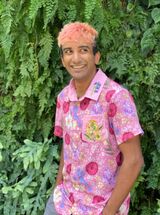
Naveen Jain
Mentor: Arjun Raj, PhD
Genetics and Epigenetics Program
Thesis Title: BEYOND LUCK OF THE DRAW: UNCOVERING CELL-INTRINSIC DETERMINANTS IN
REPROGRAMMING SOMATIC CELLS TO PLURIPOTENCY
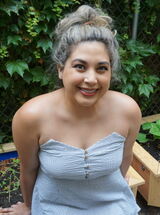
Monica Jimenez
Mentor: Jorge Henao-Mejia, MD PhD
Genetics and Epigenetics Program
Thesis Title: microRNA-mediated control of inflammation and energy homeostasis by the gut microbiota

Nicolette Johnson
Mentor: Christopher Lengner, PhD
Developmental, Stem Cell, and Regenerative Biology Program
Thesis Title: Understanding Cellular Plasticity within the Intestinal Epithelium
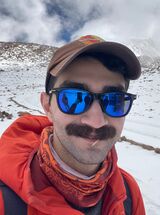
Karun Kiani
Mentor: Arjun Raj, PhD
Genetics and Epigenetics Program
Thesis Title: A systematic analysis of the concordance between chromatin accessibility and gene expression changes
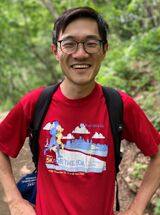
Daniel Park
Mentor: Eric F. Joyce, PhD
Genetics and Epigenetics Program
Thesis Title: Identifying novel regulators of genome folding using HiDRO
Mentor Comment: Daniel was a hugely transformative person to have in the lab. He established an amazing technology to conduct high-throughput imaging screens for chromosome folding factors and, using this method, identified several new regulators of chromosome organization. Daniel’s work is leading to a compendium of cellular factors involved in spatial genome organization, shifting our field from descriptive studies to a mechanistic dissection of specific molecules, their functions and how chromosome misfolding alters cellular functions. Also worth noting is Daniel’s scientific generosity and contribution to everything going on around him. He contributed to many projects and science in my lab (and around campus).

Sarshan Pather
Mentor: Ophir Shalem, PhD
Developmental, Stem Cell, and Regenerative Biology Program
Thesis Title: Reading, writing, and perturbing human neural cell biology
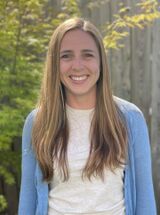
Elise Peauroi
Mentor: Ike Eisenlohr VMD, PhD
Microbiology, Virology, and Parasitology Program
Thesis Title: The role of folliculin in hepatic lipid metabolism and the pathogenesis of NAFLD and NASH
Research and Lab Description: I studied an immunomodulatory protein produced by Ectromelia virus, the agent of mousepox, and how it contributes to pathogenesis and spread of virus in mice by inhibiting the Natural Killer cell response. The Eisenlohr lab works on the intersection of virology, microbiology, cell biology and immunology to understand how the process of antigen presentation works in real biologic systems so that we can understand the actual mechanisms used by immune cells to detect infected/diseased cells.
Post PhD Plans: I am completing my veterinary degree (VMD) here at Penn in May 2023 and thereafter will be starting a residency in anatomic and toxicologic veterinary pathology at Michigan State University and Charles River Laboratories.
Mentor Comment: Fearless, rigorous, effortlessly smart. These are the attributes that come to mind when I reflect on Elise’s time in the lab, the attributes that made her one of a kind, and that will serve her so well in the future.
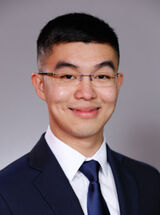
Sai Phyo
Mentor: Benjamin Prosser, PhD
Genetics and Epigenetics Program
Thesis Title: Deciphering the tubulin code during the development of cardiac hypertrophy
Mentor Comment: You can’t help but be energized by Sai’s enthusiasm and excitement for science. He brings a creativity and fearlessness to his scientific ventures that serve him well, and couples that with a technical acumen that is difficult to rival. There have been several times since he’s left the lab where I wished we could call him back to run one of his trademark flawless western blots (and bring back a dose of his bubbling personality)!
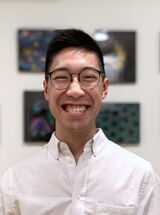
Derek Sung
Mentor: Mark Kahn, MD
Cell Biology, Physiology, and Metabolism Program
Thesis Title: Molecular interplay of VEGF-C and VE-cadherin controls sinusoidal, lymphatic, and placental vascular growth
Mentor Comment: Derek brought tremendous enthusiasm and innovation to the lab. His interest in the placenta took our lab in an entirely new direction that is now a major focus of our work. His scientific work and writing are impeccable, and he has been highly recognized for his expertise and artistry at the microscope. Finally, Derek was a superb mentor, both to permanent members of our lab and students from schools without as much science as Penn.






